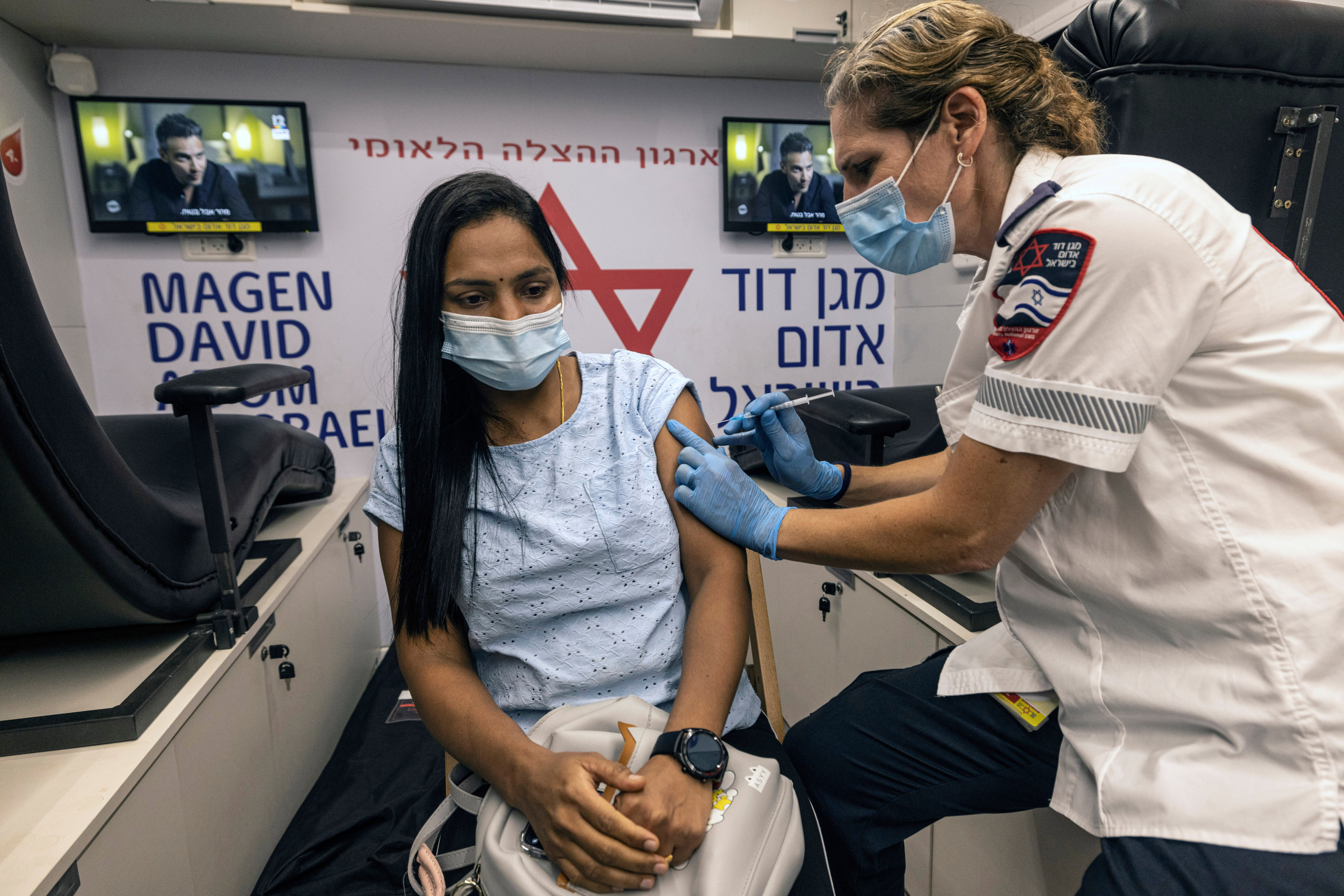Sources: US to recommend COVID vaccine boosters at 8 months
U.S. experts are expected to recommend COVID-19 vaccine boosters for all Americans, regardless of age, eight months after they received their second dose of the shot

Your support helps us to tell the story
From reproductive rights to climate change to Big Tech, The Independent is on the ground when the story is developing. Whether it's investigating the financials of Elon Musk's pro-Trump PAC or producing our latest documentary, 'The A Word', which shines a light on the American women fighting for reproductive rights, we know how important it is to parse out the facts from the messaging.
At such a critical moment in US history, we need reporters on the ground. Your donation allows us to keep sending journalists to speak to both sides of the story.
The Independent is trusted by Americans across the entire political spectrum. And unlike many other quality news outlets, we choose not to lock Americans out of our reporting and analysis with paywalls. We believe quality journalism should be available to everyone, paid for by those who can afford it.
Your support makes all the difference.U.S. experts are expected to recommend COVID-19 vaccine boosters for all Americans, regardless of age, eight months after they received their second dose of the shot, to ensure lasting protection against the coronavirus as the delta variant spreads across the country.
Federal health officials have been actively looking at whether extra shots for the vaccinated would be needed as early as this fall, reviewing case numbers in the U.S. as well as the situation in other countries such as Israel, where preliminary studies suggest the vaccine’s protection against serious illness dropped among those vaccinated in January.
An announcement on the U.S. booster recommendation was expected as soon as this week, according to two people familiar with the matter who spoke to The Associated Press on the condition of anonymity to discuss internal deliberations.
Doses would only begin to be administered widely once the Food and Drug Administration formally approves the vaccines. That action is expected for the Pfizer shot in the coming weeks.
Last week, U.S. health officials recommended boosters for some with weakened immune systems, citing their higher risk of catching the virus and evidence that the vaccines' effectiveness waned over time.
The director of the National Institutes of Health Dr. Francis Collins, said Sunday the U.S. could decide in the next couple weeks whether to offer coronavirus booster shots to Americans this fall.
Among the first to receive them could be health care workers, nursing home residents and other older Americans, who were among the first Americans to be vaccinated.
Israel has been offering a coronavirus booster to people over 60 who were already vaccinated more than five months ago.
For months, officials had said data still indicated that people remain highly protected from COVID-19, including the delta variant, after receiving the two-dose Pfizer or Moderna regimen or the one-shot Johnson & Johnson vaccine. But U.S. health officials made clear Sunday they are preparing for the possibility that the time for boosters may come sooner than later.
“There is a concern that the vaccine may start to wane in its effectiveness,” Collins said. “And delta is a nasty one for us to try to deal with. The combination of those two means we may need boosters, maybe beginning first with health care providers, as well as people in nursing homes, and then gradually moving forward” with others, such as older Americans who were among the first to get vaccinations after they became available late last year.
He said because the delta variant only started hitting the U.S. hard in July, the “next couple of weeks” of case data will help the U.S. make a decision.
The White House has said that even though the U.S. has begun sharing more than 110 million vaccine doses with the world, the nation has enough domestic supply to deliver boosters to Americans should they be recommended by health officials.